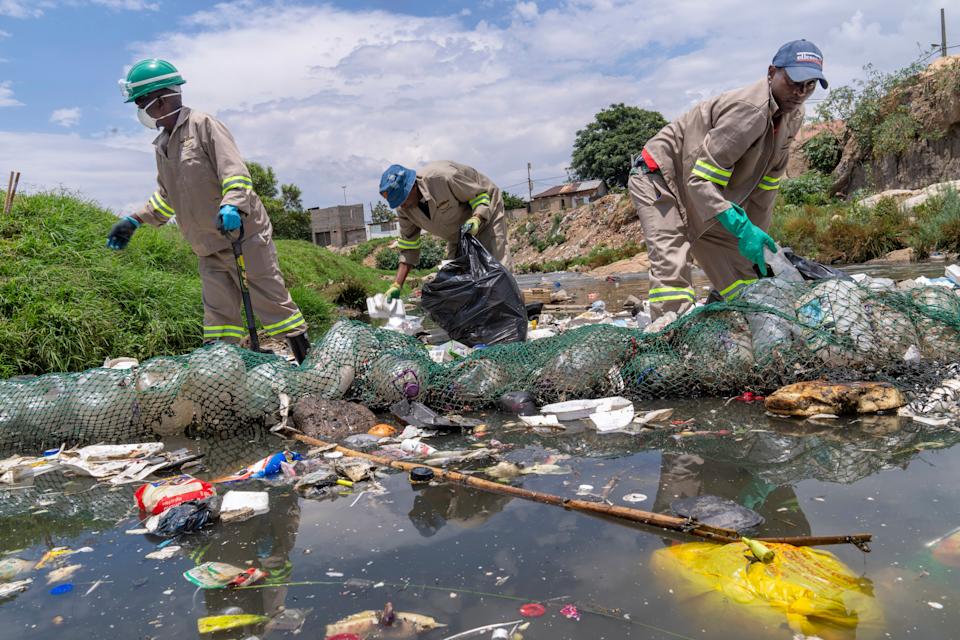In the verdant landscapes of Uganda's Mbale district, renowned for its arabica coffee cultivation, a silent intruder is making its presence felt: plastic pollution. The pervasive use of plastic bags, locally termed "buveera," has transcended urban boundaries, infiltrating remote farmlands and raising alarms among the agricultural community. This scenario is not unique to Uganda; globally, plastics are seeping into farm fields, with profound implications for soil health, crop productivity, and human well-being.
The Proliferation of Plastics in Agriculture
Agricultural practices worldwide have increasingly leaned on plastics to enhance productivity and efficiency. From plastic mulch films that suppress weeds and conserve soil moisture to greenhouse covers that extend growing seasons, plastics have become integral to modern farming. However, this reliance comes at a cost. Over time, these materials degrade into microplastics—particles less than five millimeters in size—that persist in the environment. Studies have shown that agricultural soils are substantial receptors of plastic pollution, with agriplastics contributing significantly to the microplastic load in these soils.

Impact on Soil Health and Crop Productivity
The infiltration of microplastics into soil ecosystems poses significant threats. These particles can alter the physical structure of the soil, affecting its porosity and water-holding capacity. Such changes can impede root growth and reduce nutrient uptake by plants, leading to diminished crop yields. Furthermore, microplastics can act as vectors for harmful pathogens, providing a protective niche that facilitates their survival and increases the potential for plant contamination.
Human Health Concerns
The journey of microplastics does not end in the soil. These particles can be absorbed by plants, entering the food chain and eventually making their way into human bodies. The ingestion of microplastics has been linked to various health issues, including respiratory irritation, gastrointestinal disturbances, and potential endocrine disruption due to associated chemical additives. Early findings suggest possible links to a host of health conditions, including heart disease and some cancers.

The Role of Climate Change
Climate change exacerbates the challenges posed by plastic pollution in agriculture. As farmers grapple with unpredictable weather patterns and increased incidences of drought and flooding, the use of plastic-based solutions like mulch films and greenhouse covers has intensified. While these materials offer short-term benefits, their long-term environmental footprint is concerning. Extreme weather events can accelerate the breakdown of plastics, leading to a more rapid release of microplastics into the soil and waterways.

Global Initiatives and Solutions
Addressing the menace of plastic pollution in agriculture requires a multifaceted approach. Internationally, efforts are underway to formulate policies aimed at reducing plastic waste. For instance, the United Nations Environment Programme (UNEP) has highlighted the alarming rate at which plastics are leaching into farmlands and is advocating for sustainable alternatives.
On the technological front, research is being conducted into biodegradable alternatives to conventional agricultural plastics. These innovations aim to provide farmers with the benefits of plastic use without the enduring environmental drawbacks. Additionally, improved waste management practices, such as the collection and recycling of agricultural plastics, are being promoted to prevent environmental contamination.
The Way Forward
The infiltration of plastics into agricultural soils is a pressing issue that intersects environmental sustainability, food security, and public health. While the challenges are formidable, they are not insurmountable. Through concerted efforts encompassing policy interventions, technological innovations, and community engagement, it is possible to mitigate the adverse effects of plastic pollution in agriculture. Farmers, consumers, and policymakers must collaborate to foster practices that prioritize the health of the soil, the safety of our food, and the well-being of future generations.
In conclusion, as plastics continue to seep into farm fields and, consequently, human bodies, it is imperative to address this issue with urgency and resolve. The health of our planet and its inhabitants depends on the actions we take today to curb plastic pollution and promote sustainable agricultural practices.



